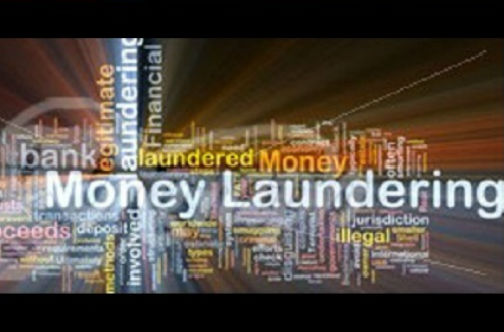دور البنوك في مكافحة جرائم غسل الأموال في القانون اليمني
The Role of Banks in Combating Money Laundry Crimes in Yemeni Law

اعداد : أ.م.د منير محمد علي الجوبي – رئيس قسم العلوم الجنائية بكلية الدراسات العليا
- المركز الديمقراطي العربي –
-
مجلة العلوم السياسية والقانون : العدد الثاني والثلاثون حزيران – يونيو 2022 – المجلد6 – وهي مجلة دولية محكمة تصدر عن #المركز_الديمقراطي_العربي المانيا- برلين.
- تُعنى المجلة في الدراسات والبحوث والأوراق البحثية عمومًا في مجالات العلوم السياسية والعلاقات الدولية،والقانون والسياسات المقارنة، والنظم المؤسسية الوطنية أو الإقليمية والدولية.
Journal of Political Science and Law
للأطلاع على البحث من خلال الرابط المرفق :
ملخص :
الواقع أن عمليات غسل الاموال لم تكن مجرمة من قبل التشريع اليمني وتشريعات العديد من الدول، وكان التجريم يقتصر فقط على النشاط غير المشروع الذي يتحقق منه المال غير المشروع محل الغسل، ولكن بسبب خطورة غسل الأموال على الجوانب الاقتصادية، والأمنية، والسياسية، والاجتماعية كان لابد من وضع تشريع خاص يجرم هذا النشاط ويعاقب مرتكبه.
وقد تم تداول هذا المصطلح في كافة المحافل المحلية، والإقليمية، والدولية المهتمة بالجرائم الاقتصادية مع ظهور النظام العالمي الجديد المسمى بالعولمة والذي أدى إلى تحرير الأسواق، وتزايد حركة النشاط الاقتصادي وتحرير التجارة الخارجية وانتقال رؤوس الأموال بين الدول بدون قيود مالية وإدارية.
وقد رافق ذلك تدفق أموال ناتجة عن أنشطة غير مشروعة يسعى الجناة إلى إخفاء مصدرها حتى لا يتم اكتشافها ومصادرتها، وذلك عن طريق القيام بأنشطة اقتصادية وهمية وهو ما يشكل خطر كبير على مناخ الاستثمار محلياً ودولياً ويضر بمصداقية الأسس الاقتصادية المعروفة؛ ولأجل ذلك كان الاعتماد المباشر في كشف مثل تلك الجرائم ينصب في المقام الأول على البنوك التي تدور فيها حركة تلك الأموال.
وتهدف دراستنا هذه إلى بيان دور البنوك في الرقابة على عمليات غسل الأموال وأساليب الرقابة المتبعة وبيان أنسب الوسائل القانونية لمعاقبة مجرمي غسل الاموال، وذلك على ضوء قوانين مكافحة جرائم غسل الأموال.
Abstract
In fact, money laundering processes were not criminalized by Yemeni legislation and in many countries, the criminalization was only confined to the illegal activity that verifies illegal money being laundered, because of the danger of money laundering on the economic, security, political and social aspects, it was necessary to put in place Special legislation for criminalizes this activity and punishes the perpetrator.
This term has been circulated in all local, regional and international forums interested in economic crimes because of the new world order called globalization, which led to the Liberalizing markets, increasing the movement of economic activity, liberalizing foreign trade, and transferring capital between countries without financial and administrative restrictions.
This was accompanied by an influx of funds resulting from illegal activities that the perpetrators seek to hide their source so as not to be discovered and confiscated, by carrying out fictitious economic activities, which poses the climate of locally and internationally investment to a great danger and harms the credibility of well-known economic foundations; for that, the dependence in detecting such crimes was focused primarily on the banks in which the movement of those funds revolved.
The aims of study to clarify the role of banks in controlling money laundering processes and the methods of control followed, to indicate the most appropriate legal means to punish money laundering criminals, in the light of the laws against money laundering crimes.
In the end, I reached a number of conclusions and recommendations




